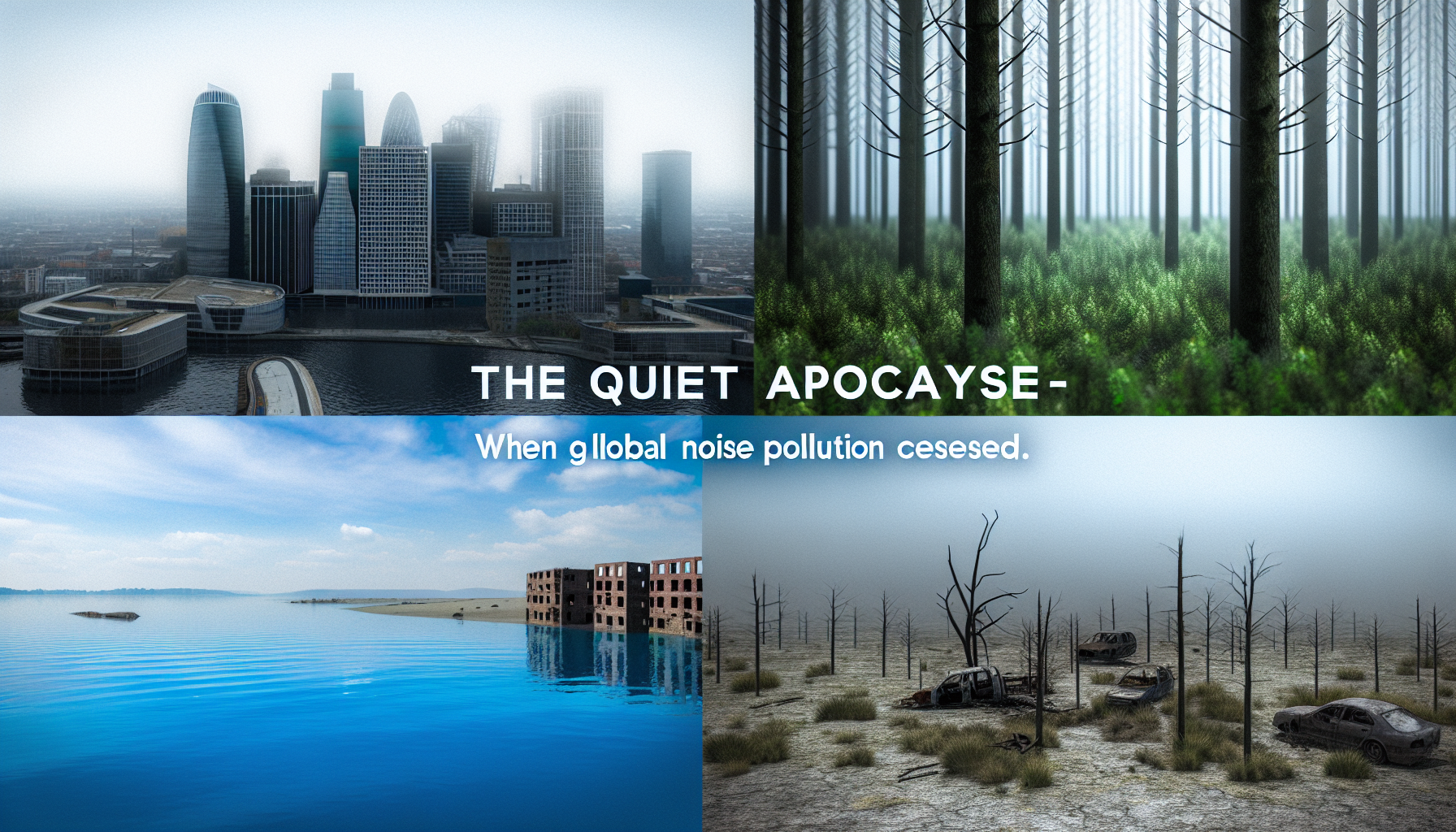In an era where the cacophony of industrialism once defined the pulse of Earth, a haunting calm now spreads across the globe. We surrender to an eerie hush in "The Quiet Apocalypse – When Global Noise Pollution Ceased," a reality where the human-made din is no more, not due to the salvation of our environment, but rather to its somber defeat.
As we traverse this silent world, it’s difficult not to reflect on the brash symphony of sound we once produced. Traffic roars, construction clamors, and urban hustle all fell mute, leaving an oppressive quiet in their wake. Skyscrapers stand as mausoleums of the past, their lifeblood – the sound of human activity – drained away, now monuments to the death of ambience.
"The world did not fall with a bang, but rather, a whisper," observes the somber refrain of conservationists who had long fought against the tide of noise pollution. They highlight an unexpected irony – in losing the battle, they achieved what once seemed a noble aim: a world free from the clamor of human excess.
Within this stillness, we find the oceans have become libraries of hushed histories; no more do their waves crash in a frenzy, but lap gently as if fearful of disturbing the peace. Whales, those majestic conductors of submarine sonnets, no longer sing with joy but whisper in monotonous tones – a dirge for their muted kin.
Forests, too, share in this barren soliloquy. The Twitter of birds and chatter of insects have dimmed to a silence that hangs heavy on the branches. The absence of sound here is not one of peace but void – a testament to what has been irretrievably lost.
Yet, the human spirit does not easily succumb to despair. In pockets of resistance, communities gather to commemorate the sounds of yesteryears. Guerrilla concerts held in secret – featuring the replicated sounds of endangered birds, the simulated rustling of winds through a healthy canopy – serve as a defiant act against the quiet, a refusal to let go of what once was.
In this silent dystopia, one ponders if the cessation of global noise pollution is a victory at all. Our planet’s natural soundscape was not saved by conscious effort but forsaken by ecological ruin. What legacy do we leave behind when even the hum of insects is a nostalgic memory?
While the quietude is profound, it is pregnant with the echoes of lessons unheeded. Our generation inherited a dissonant world; fractured, we witness the aftermath of nature’s exploitation, a world we continue to inhabit in mute awe and regret.
This silence is not serenity – it is a requiem, a final breath drawn by a planet once vibrating with life. In the stillness of an apocalyptic hush, we find a truth harsh and cruel: the global symphony has ceased, not by choice, but by neglect.
